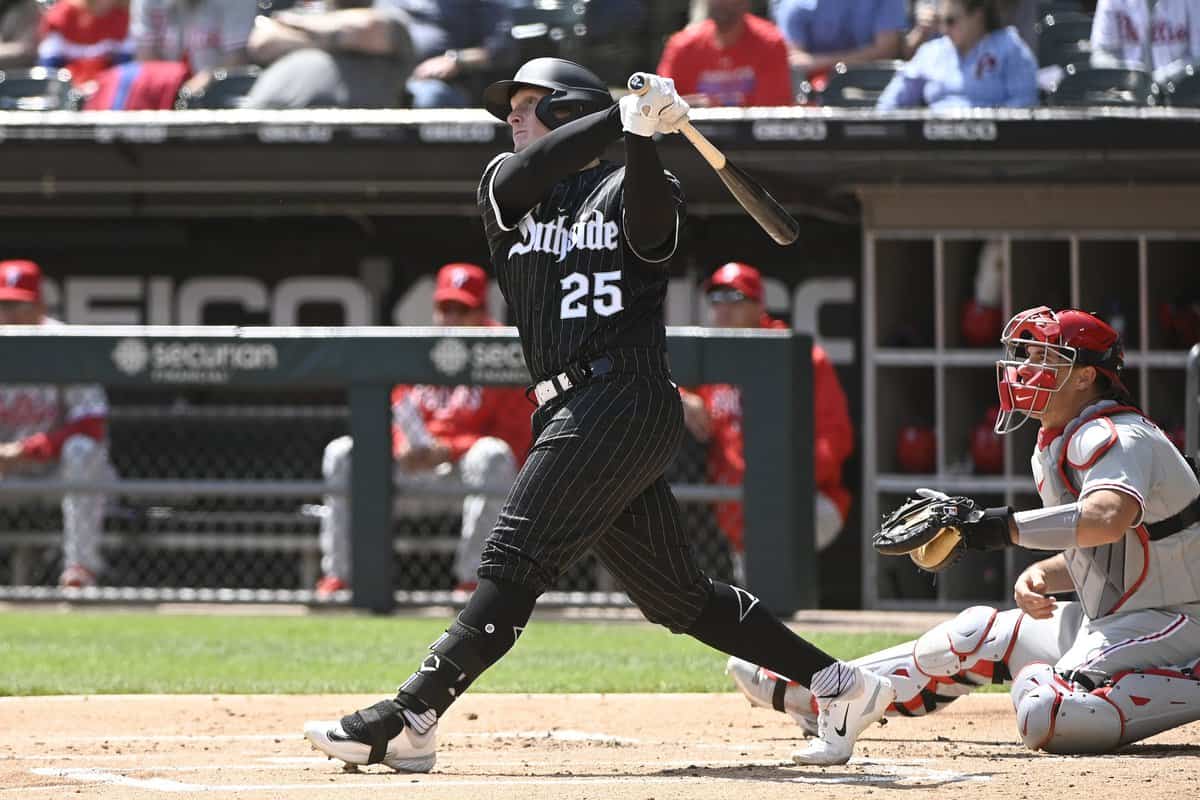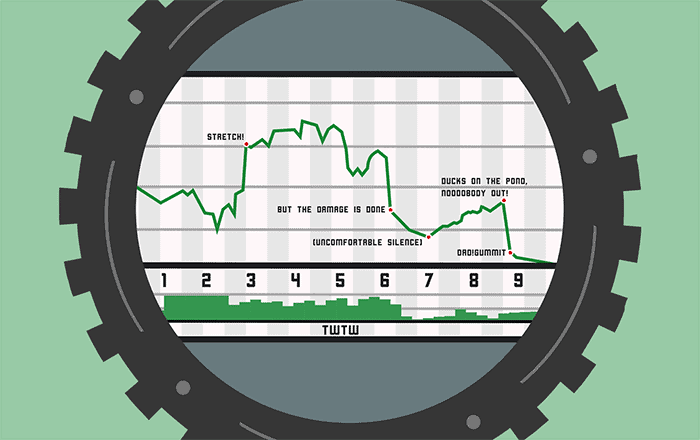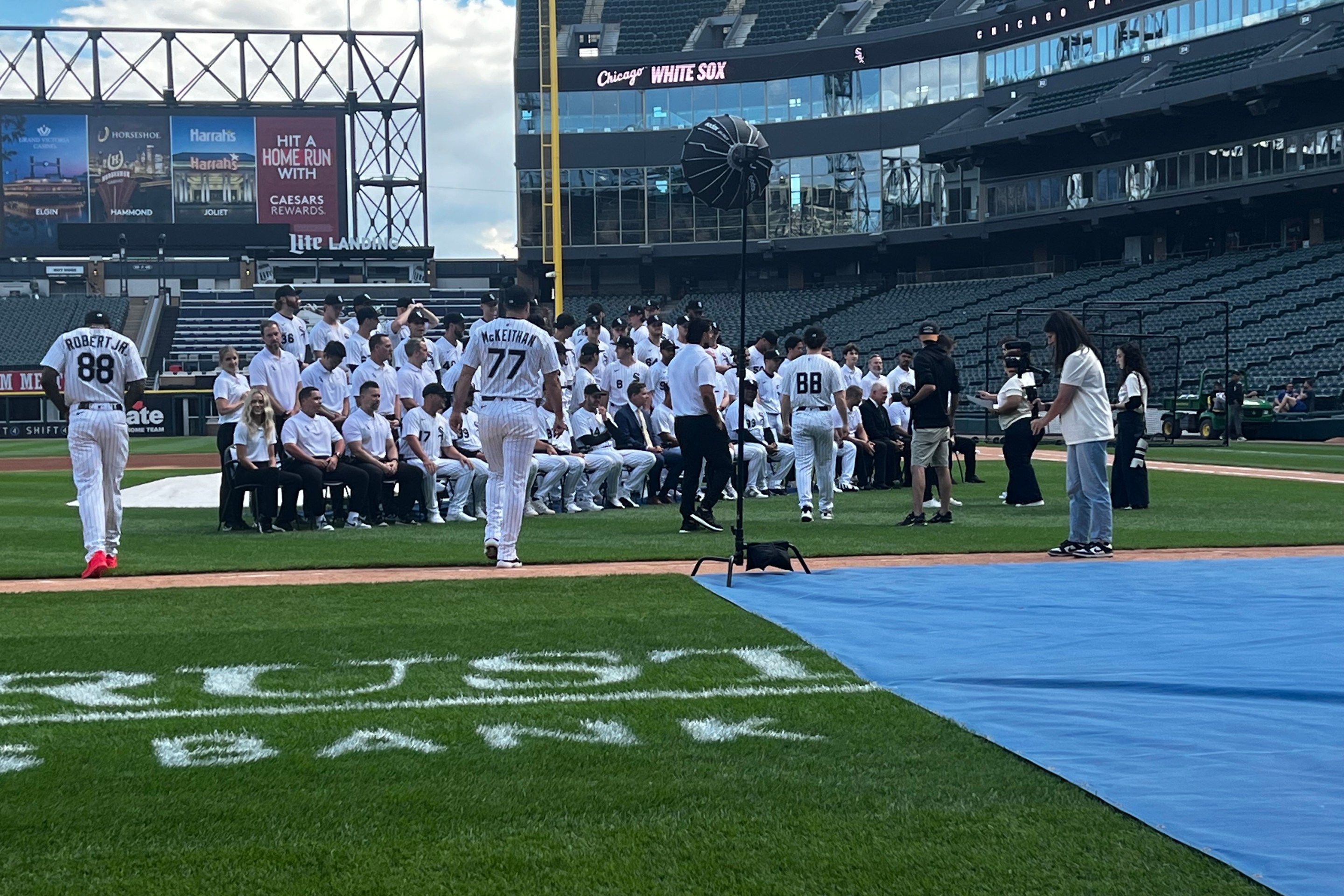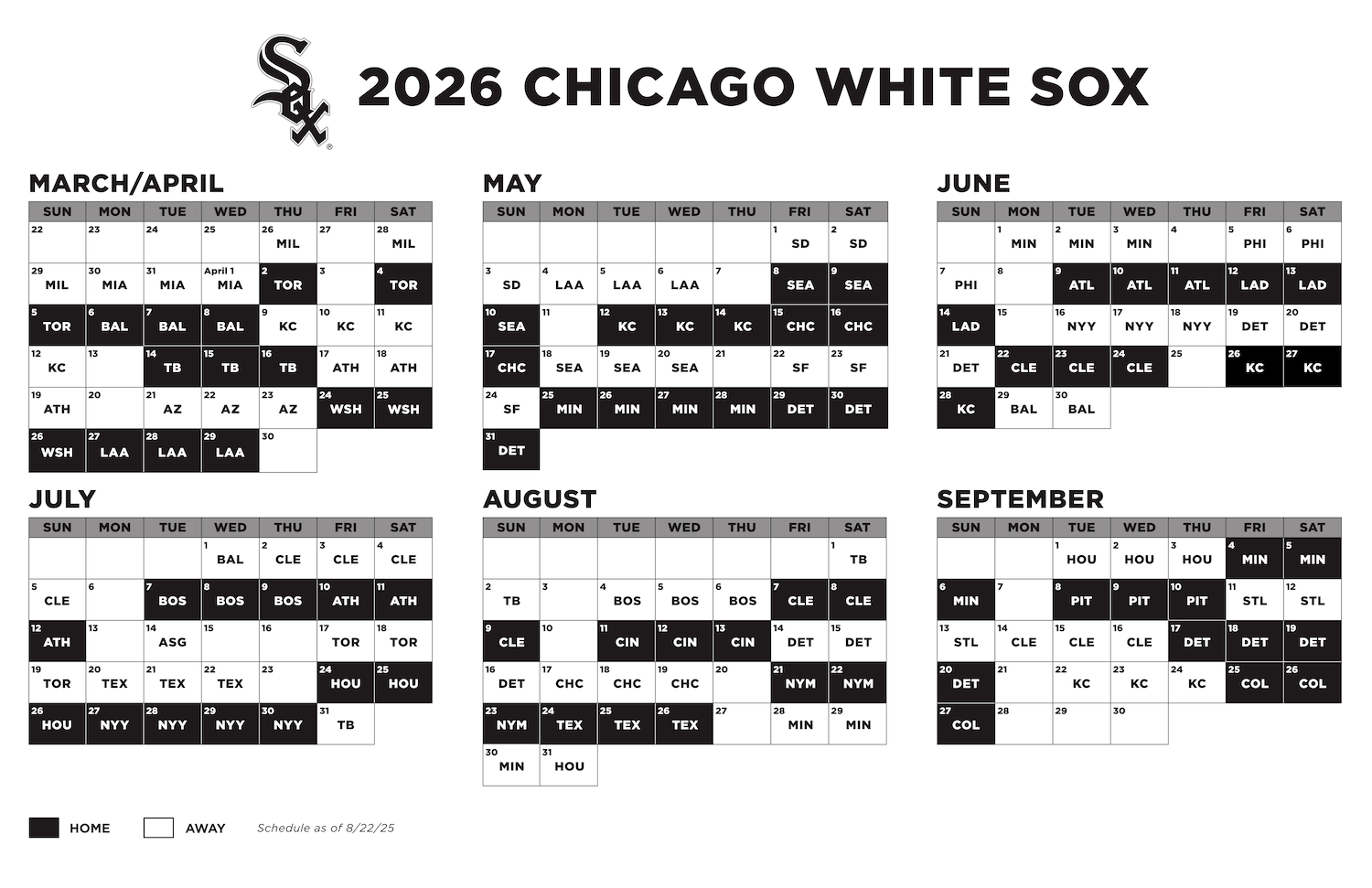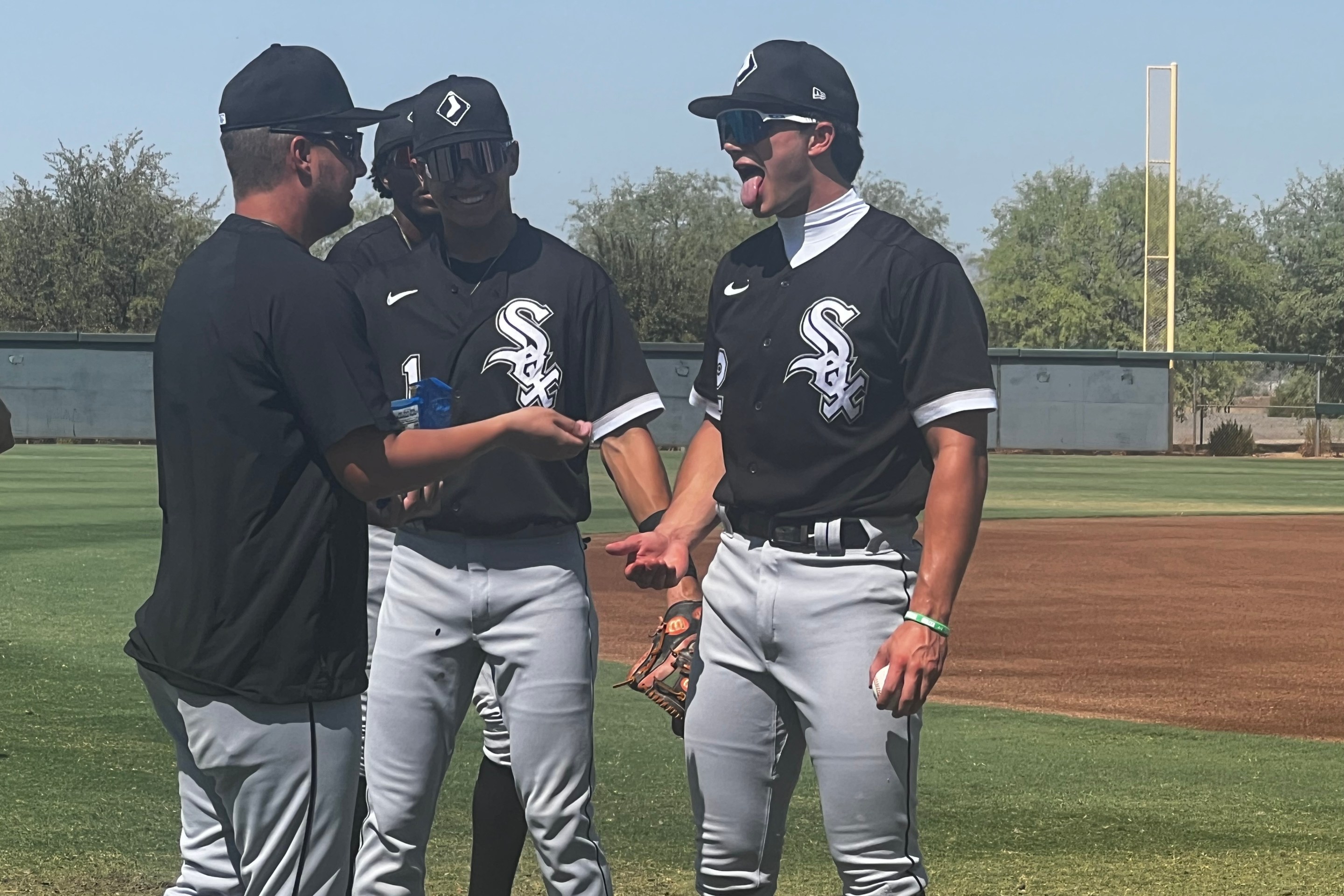The White Sox don't have whole lot going right for them at the moment, but now that Andrew Vaughn finally barged into the home run column on Wednesday, it feels a little safer to highlight the changing of the guard at first base.
Vaughn had been doing just about everything you'd want to see besides the lack of homers. The league is throwing him fewer fastballs, and he's responded by doing a lot less swinging. He went from the 24th percentile in chase rate to the 75th percentile, and that makes him the team's most selective hitter by a considerable margin.
The contact had been sound, with Vaughn punishing several pitches for doubles to the pull field, and just missing a couple degrees of launch angle or the right amount of backspin to get over the fence. He finally put all the elements together on Taijuan Walker's hanging slider in the first inning for the White Sox's only runs in their 5-2 loss to the Phillies, and he's off the schneid.
Vaughn then added a sharp single and a warning track fly to center. The day's work gave him a 50-point boost in slugging percentage, and now he's hitting .273/.385/.424.
It's not a typical line for a first baseman, but it's more than what José Abreu is giving the Astros. Abreu is off to one of his underwhelming Aprils, hitting .266/.301/.304 with three doubles, zero homers, and three walks to 19 strikeouts over 19 games.
Abreu almost always starts slow, but this time it's coming after an unimpressive finish the year before. He hit just three homers over the last two months of the 2022 season, and now he's homerless in his first 19 games of the 2023 season, even though he now makes his home in a warm-weather/climate-controlled city. He's also dealing with an organization and fan base that hasn't lived through a half-dozen dalliances with decline, so the pressures are fresh.
While Abreu's White Sox career ended in an unfortunate way due to the lack of support on the field and apparently insufficient respect off the field, and while the early injuries this season makes Abreu's durability even easier to appreciate, a transition from Abreu to Vaughn always remained the simplest way to reduce the spending on first base/DH types, and Vaughn is doing his part in the early going.
Shouldn't it feel more satisfying, you may be asking, and sure. Part of it's because the White Sox are 7-12, but it's also because both Vaughn was on the 2022 White Sox, so the impact of his improvement is mostly contained to the roster spot he already occupied. That doesn't make it any less considerable or appreciated, but the task of replacing Abreu's contributions to the 2022 White Sox are displaced to other players.
The primary one is Andrew Benintendi, who effectively replaced Abreu's salary on the books, and whose ability to play left field pushed Eloy Jiménez and Gavin Sheets to the DH plate appearances that Abreu occasionally absorbed. So far, Benintendi's production with the White Sox resembles Abreu's in Houston (.273/.314/.333), except with baseball's fourth-lowest hard-hit percentage among regulars.
I wouldn't rush to judge Benintendi on his first month with the White Sox. He's only accrued 30 plate appearances at home and he appears to like what he sees there (.321/.367/.429) so far, so he indeed may take special advantage of Guaranteed Rate Field in the near future.
There is some urgency, though, because while Benintendi signed a five-year deal, how he performs in the first three months of it could help determine the kinds of teams the White Sox will roll out over the remainder of his term. When the Sox landed Benintendi back in December, it reminded me of the Melky Cabrera deal, because it's a sizable commitment for a corner outfielder who might hit, what, 15 homers? When Cabrera struggled out of the gate, the Sox felt it. When Cabrera eventually recovered and turned in a typical Melky Cabrera season ... the Sox didn't really feel any effects. His defensive limitations paired with his ordinary power to cap his contributions at 2.5 WAR, and all the other drama drowned it out.
Benintendi offers a better glove than Cabrera to make him a stabler presence, but he offers a similar high floor that won't really help until some combination of Eloy Jiménez, Yoán Moncada and Tim Anderson start hitting like they can. That requires some finger-crossing, because Jiménez is struggling to get the ball in the air since coming off the IL, Moncada will likely need a rehab stint whenever his back allows him to resume competitive baseball activities, and Anderson had his own significant 55-game home-run drought before injuring his knee.
Throw in Oscar Colás dealing with predictable rookie hardships, and Benintendi's mild contributions will be nigh impossible to detect, just like they were in Kansas City. It'd be great if he could step it up, even if only to buy time for those returning, because a complementary player is only effective when he has talent to complement.
